When you can do it yourself and when it’s time to call in the experts.
Let’s be honest, there’s a certain satisfaction in fixing things yourself. The triumphant feeling when you’ve successfully assembled that flat-pack furniture or unclogged that stubborn drain is undeniable. But while your DIY skills might impress at a dinner party, when it comes to Legionella testing, the question becomes: are you feeling lucky?
Because here’s the cold, hard truth: getting Legionella testing wrong isn’t like picking the wrong shade of paint. It’s more like deciding to rewire your house after watching a five-minute YouTube tutorial, potentially disastrous, definitely illegal and likely to leave you explaining yourself to people with clipboards and serious expressions.
At HCS Water Treatment, part of Premier Technical Services Group Ltd (PTSG), we’ve seen it all, from well-intentioned maintenance managers with testing kits they barely understand to facilities directors who think a quick glance at the water tank constitutes a “thorough inspection.” We’re not here to judge (okay, maybe a little), but we are here to help you understand when to roll up your sleeves and when to pick up the phone.
The DIY Testing Temptation
We get it. Professional testing seems expensive. The internet is bursting with affordable testing kits promising “laboratory-grade results.” And how hard can it be to take a water sample, really?
DIY testing has its place in a comprehensive water management strategy. Simple monitoring tasks like:
- Regular temperature checks at outlets
- Visual inspections for obvious issues like discoloration or sediment
- Basic flushing routines for infrequently used outlets
- Documenting and logging these routine checks
These are all valuable practices that responsible building managers should absolutely incorporate into their maintenance routines. They’re the water safety equivalent of checking your car’s oil and tire pressure, basic maintenance that helps prevent bigger problems.
When DIY Goes Wrong: A Horror Story in Three Acts
Act 1: False Confidence
Meet Dave, a well-meaning building manager armed with an internet-purchased testing kit and the confidence of someone who’s watched every episode of “How It’s Made.” Dave diligently collects samples, follows the instructions (mostly), and breathes a sigh of relief when everything comes back negative. All good, right?
Act 2: The Silent Spread
Unbeknownst to Dave, his sampling technique was flawed, the testing kit wasn’t sensitive enough, and the real Legionella colonisation was happening in a section of pipework he didn’t even know existed. Meanwhile, the bacteria are having the time of their lives, multiplying faster than office gossip after the Christmas party.
Act 3: The Reckoning
Fast forward three months: two employees are hospitalised with Legionnaires’ disease, the Health and Safety Executive is crawling all over the building, and Dave is explaining to his boss why their company logo is appearing next to the words “negligence” and “preventable” in the local news.
The moral of this cautionary tale? DIY testing can create a dangerous illusion of safety that might actually increase your risk by leading you to overlook critical issues that only professional assessment would identify.
When the Professionals Need to Step In
If DIY monitoring is checking your car’s oil, professional testing is the comprehensive service with diagnostic equipment that spots the failing transmission before you’re stranded on the motorway. Here’s when you absolutely need the pros:
- For your initial risk assessment: This foundational document requires specialised knowledge of both the biology of Legionella and the engineering of water systems.
- When conducting formal sampling for compliance: If it’s going in your official records or being reported to regulatory bodies, it needs professional validation.
- After any significant changes to your water system: Renovations, extensions, or changes in building use all warrant professional reassessment.
- Following a suspected or confirmed case of Legionnaires’ disease: This is no time for amateur hour—professionals must identify the source and extent of contamination.
- In high-risk settings: Hospitals, care homes, schools, and anywhere with vulnerable populations demand professional oversight.
- For complex systems: Cooling towers, spa pools, complex hospitals or industrial settings require specialised knowledge.
- When your system has a history of problems: Previous Legionella detections, recurring temperature control issues, or persistent sediment problems are red flags for professional attention.
What the Professionals Bring to the Table
Professional Legionella testing isn’t just about better equipment (though that’s certainly part of it). When you engage a qualified service provider like HCS Water Treatment, you’re getting:
- Accreditation and training: Our specialists are fully trained and accredited by the Legionella Control Association (LCA) and adhere strictly to the LCA code of conduct.
- Sampling expertise: Knowing where and how to sample is an art form backed by science, our technicians understand the microbiological subtleties that can affect results.
- Comprehensive system knowledge: We don’t just test water; we understand how your entire system works together and where vulnerabilities might exist.
- Laboratory partnerships: Professional samples are analysed in accredited laboratories with sophisticated equipment and rigorous quality control.
- Contextual interpretation: Raw data means nothing without expert interpretation based on your specific system and circumstances.
- Actionable recommendations: We don’t just tell you there’s a problem; we provide clear, practical steps to address it.
- Documentation for compliance: Our reports satisfy regulatory requirements and provide legal protection that DIY testing simply cannot.
- Technology-enhanced monitoring: From our ZetaSafe Dashboard to advanced remote monitoring systems, we leverage technology to provide continuous visibility into your system’s health.
Finding the Right Balance: The Intelligent Approach
The smartest water management strategies combine regular in-house monitoring with professional testing in a balanced approach:
Daily/Weekly (DIY)
- Temperature checks at sentinel points
- Flushing of infrequently used outlets
- Visual inspections
- Maintaining simple logs
Monthly/Quarterly (Professional)
- Comprehensive sampling regimens
- System performance assessments
- Compliance documentation
- Technical adjustments
Annually/Bi-annually (Professional)
- Full system risk assessments
- Comprehensive reviews of water safety plans
- Training updates for in-house staff
- Technology and monitoring upgrades
This layered approach provides daily vigilance supported by expert validation, the best of both worlds for both safety and cost-effectiveness.
HCS Water Treatment: Your Partner, Not Just Your Provider
At HCS, we don’t just swoop in with clipboards and test tubes. We work collaboratively with our clients to:
- Train your staff in appropriate monitoring techniques
- Design customised testing schedules that make sense for your facility
- Implement user-friendly logging systems that capture valuable data
- Interpret results in the context of your unique environment
- Develop long-term strategies that balance safety, compliance, and cost-effectiveness
Our expertise spans diverse environments – from the complex systems of the Glasgow Royal Infirmary to the widespread properties of the City of Edinburgh Council – giving us unparalleled insight into effective testing strategies across sectors.
The Bottom Line: When to DIY and When to Call
DIY is appropriate when:
- Conducting routine temperature monitoring
- Performing scheduled flushing of low-use outlets
- Maintaining simple, routine logs
- Supporting a professional program with additional data points
Professionals are essential when:
- Establishing baseline assessments
- Conducting legally required testing
- Investigating suspected problems
- Managing high-risk environments or systems
- Creating comprehensive water safety plans
- Training staff on proper procedures
- Interpreting complex results
Remember: Legionella testing isn’t about ticking a box; it’s about protecting health and lives. The question isn’t really “Can I do this myself?” but rather “Should I risk doing this myself?”
Ready to stop playing water roulette? Contact HCS Water Treatment today on 0141 212 7247 or email us at hello@hcsuk.org to discuss a testing strategy that gives you real confidence, not just the illusion of safety. Because when it comes to Legionella, what you don’t know really can hurt you.


